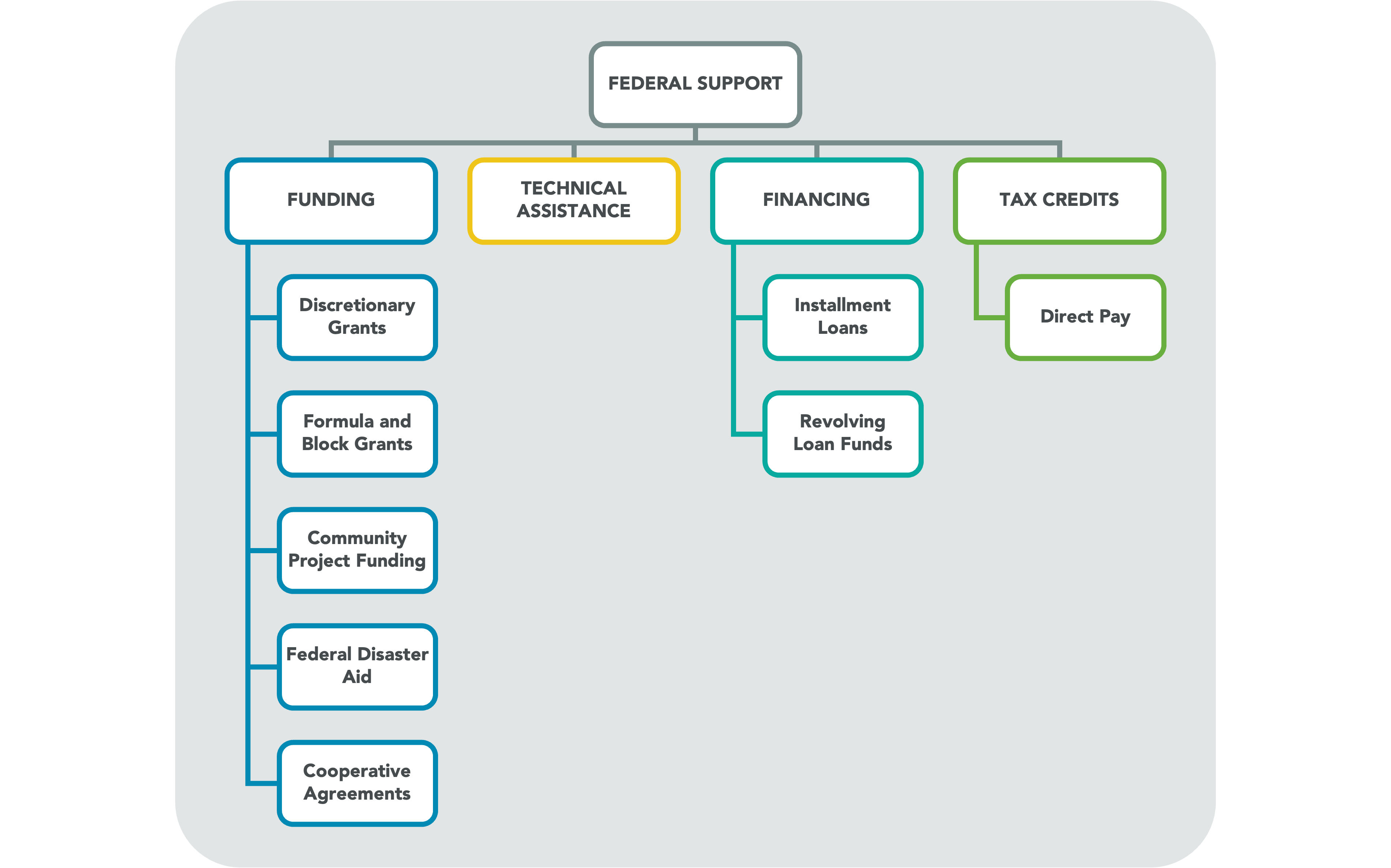
Funding Guidance
Types of Federal Assistance
-
Discretionary Grants
Definition: Discretionary grants are competitive. Eligible parties must apply for funding, which is neither guaranteed nor carved out for certain parties. Rather, applications that meet baseline criteria are subsequently ranked based on agency priorities. Each agency’s process will differ, as will program priorities under different leadership.
Example: Discretionary Grant Program for Charging and Fueling Infrastructure (Community Charging)
-
Formula and Block Grants
Definition: Formula grants are awarded based on statistical criteria, including (but not limited to) population, socioeconomic status, and demographic characteristics. This process is not competitive; all applicants that meet the desired statistical profile will receive funding. Block grants are similar to formula grants, but they usually fulfill more general purposes and come with fewer restrictions from the Federal Government.
-
Community Project Funding / Congressionally Directed Spending
Definition: Community Project Funding (CPF) is a special kind of discretionary spending from Congress. In the past, CPF was simply known as “earmarks.” CPF can be used to fund a variety of ambitious, multi-jurisdictional, and “outside-the-box” clean energy projects with fewer guidelines than other programs. Note that Community Project Funding is the name in the House of Representatives; in the U.S. Senate, the funding is simply known as Congressionally Directed Spending. See Community Project Funding for Local Climate Action for more details.
-
Federal Disaster Aid
Definition: Federal disaster aid becomes available after a presidentially or federally declared disaster. Such declarations enable emergency federal funding and other resources to support communities affected by catastrophic events. Federal agencies may vary in their definitions of disaster-affected communities, so you should consult FEMA’s list of declared disasters, review funding agencies’ guidelines, and/or contact program administrators to clarify your city’s eligibility.
-
Cooperative Agreements
Definition: Cooperative agreements are typically discretionary legal instruments that allow an agency to provide money or direct assistance to fulfill a public purpose. These awards are used when substantial federal involvement is anticipated. Many grant programs will require cooperative agreements upon the award of funds.
-
Technical Assistance
Definition: Technical assistance is a type of support provided to qualifying entities or applicants that does not involve the transfer of funding, but rather other resources like staff expertise and capacity building. Technical assistance can be leveraged to accelerate or enhance the design of projects or support effective community engagement and planning to increase readiness for future funding. The AFFORD tool only lists federal technical assistance, though other technical assistance opportunities may be available by regional, state-based, and national organizations for equitable climate action and other sustainability projects.
-
Installment Loans
Definition: Installment loans provide capital that must be repaid within a certain time period or “term.” Loan agreements will often include amortization schedules, in which debts are gradually reduced by regular payments throughout the term.
-
Revolving Loan Funds
Definition: Revolving loan funds (RLFs) provide an ongoing source of capital to eligible applicants. Following their initial capitalization, RLFs can dispense loans up to a set borrowing limit. When loans are repaid, these funds refill, or “revolve,” to support additional borrowing for new projects. Because RLFs do not set payment plans, they usually require lower borrowing amounts and higher interest compared with installment loans.
-
Direct Pay
